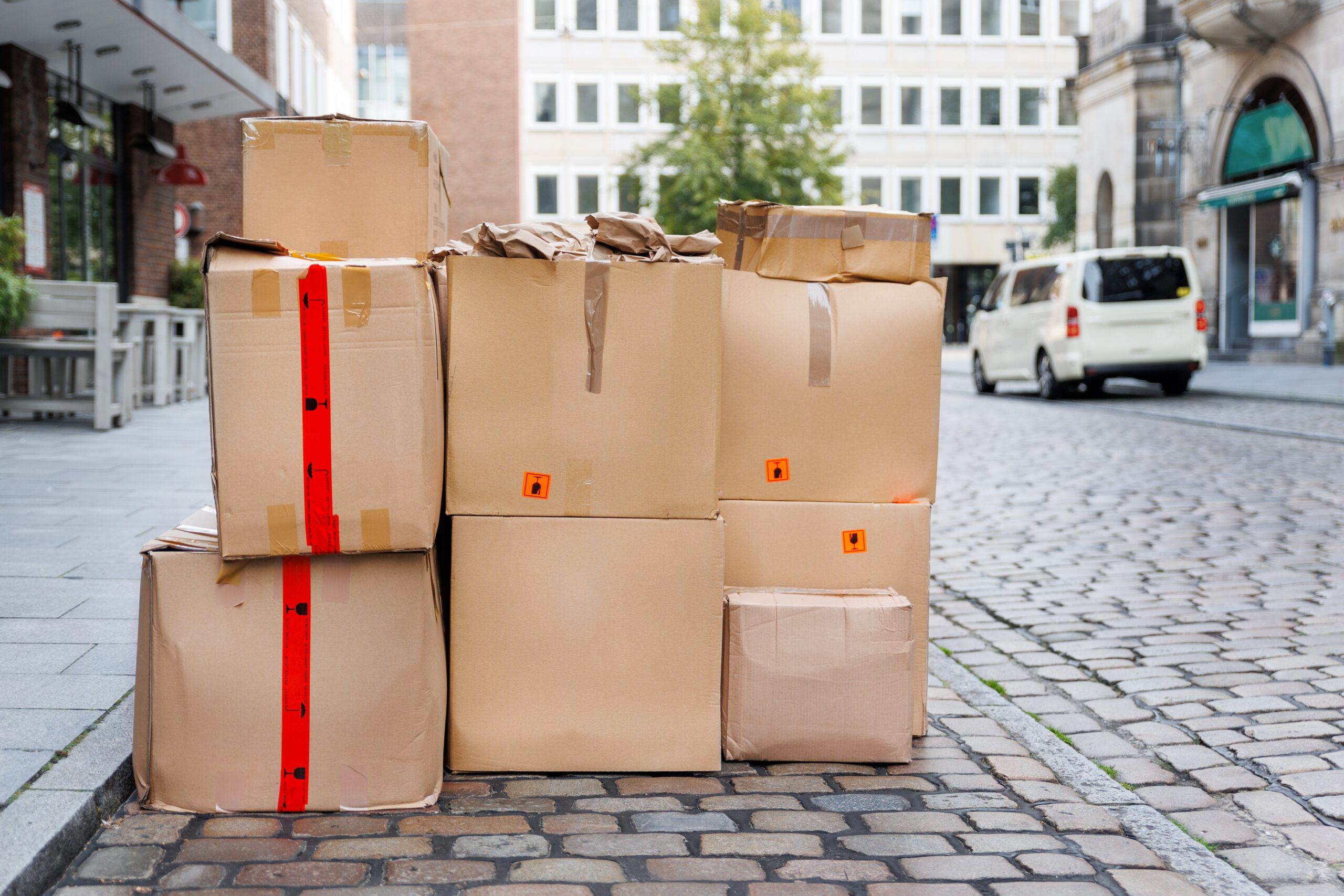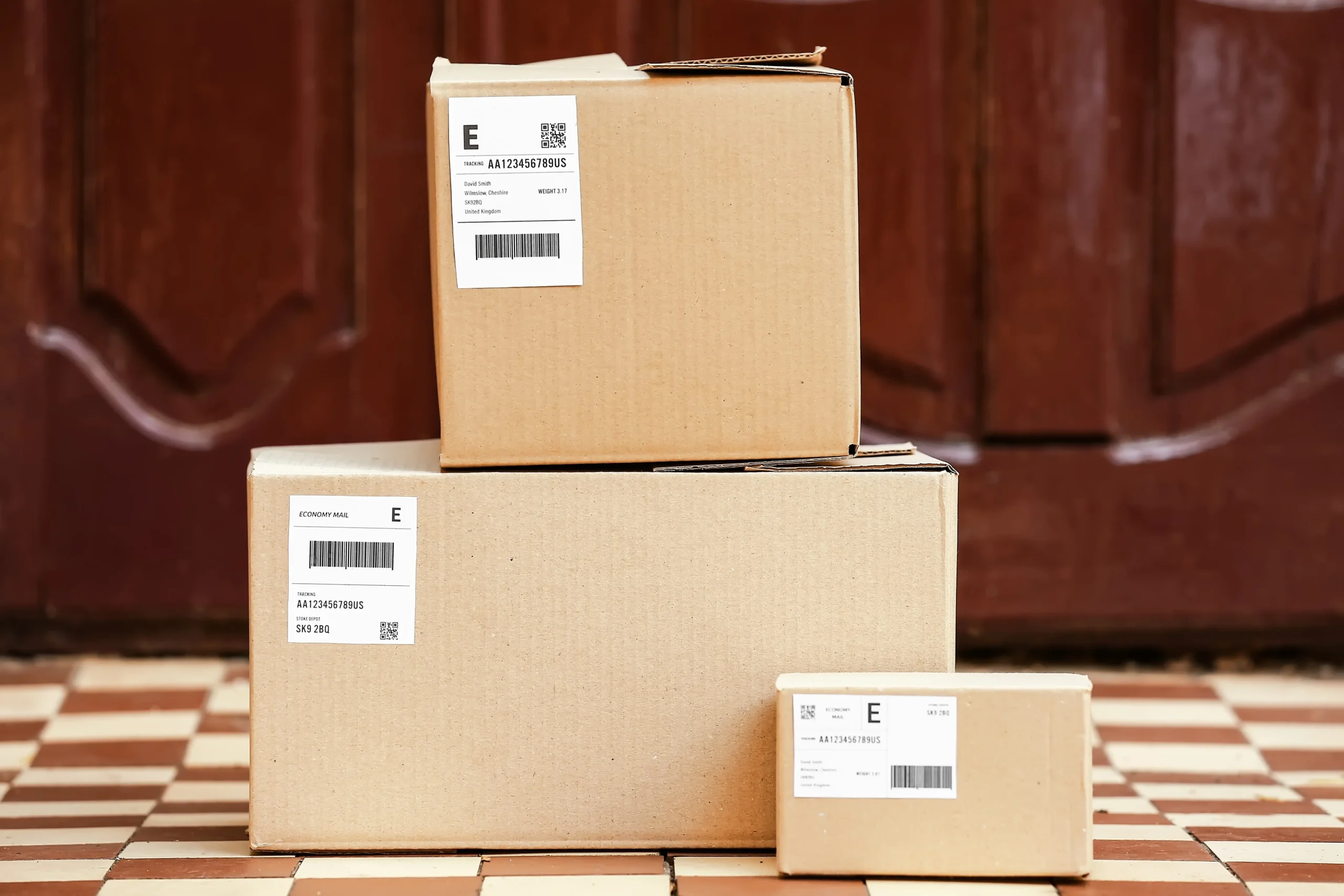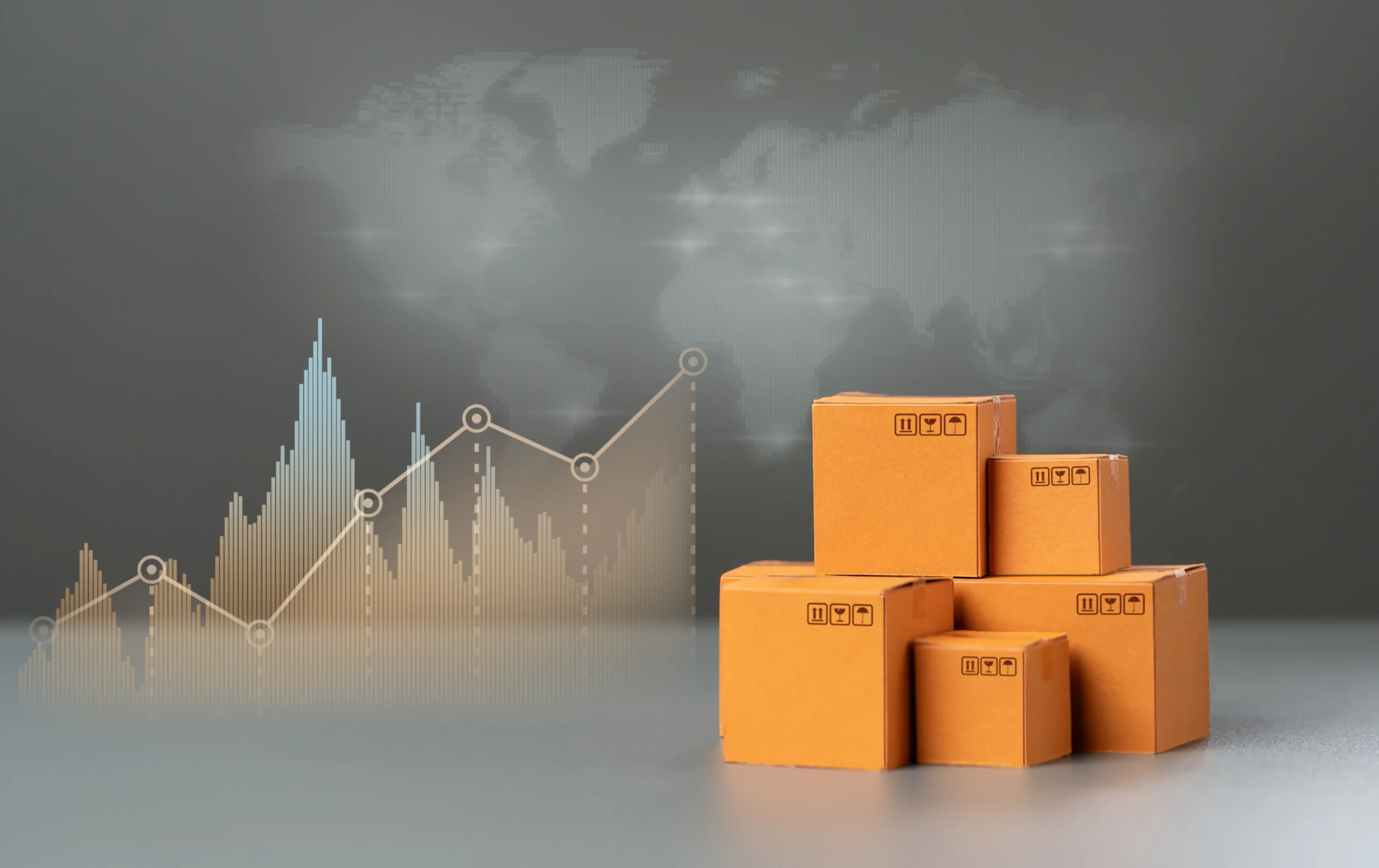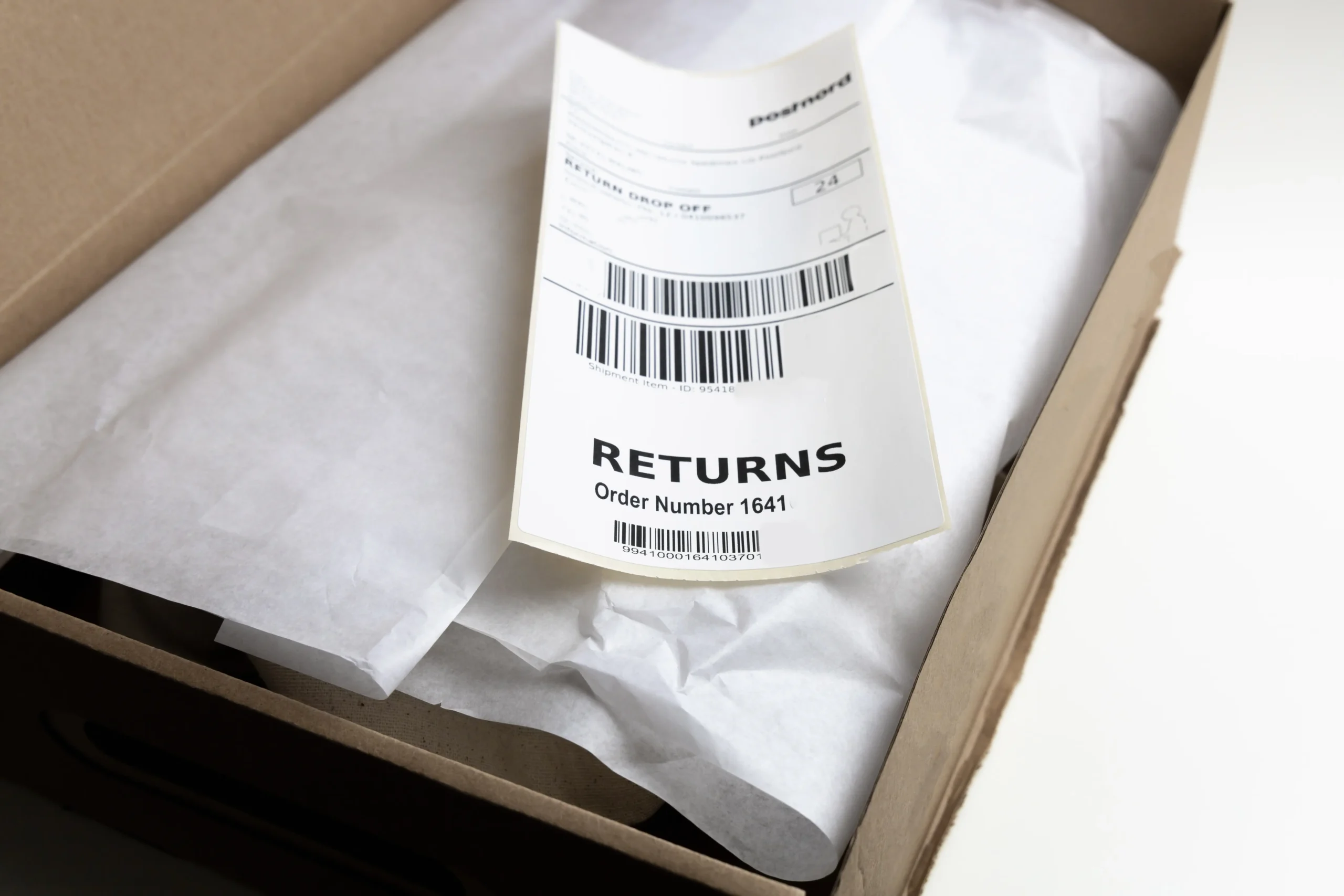It’s no surprise; consumers are becoming more environmentally conscious. They’re taking reusable bags to the grocery store, buying electric vehicles in record numbers, and ushering the death of the plastic straw. So naturally, they expect the same behavior from the brands they buy from.
In the age of one-day shipping, free shipping, and guaranteed delivery dates, it might seem like cheaper and faster is the key to winning customers – but is this true? How much do consumers consider a company’s eco-friendly practices when buying online? If they do, would they be willing to pay more and wait longer for eco-friendly shipping?
Sifted surveyed 500 individuals to determine just that. Here’s what we found.
1. Two-thirds of consumers factored eco-friendly practices into their purchase decisions
The eco-conscious consumer is on the rise, and they want to buy from brands committed to being part of the climate-change solution. In fact, two-thirds of our participants say (rated a 6 or higher on a scale of 1 to 10) a brand’s eco-friendly practices influenced a purchase decision.
Additionally, only 21% of respondents say they never research a company’s eco-friendly practices before buying.
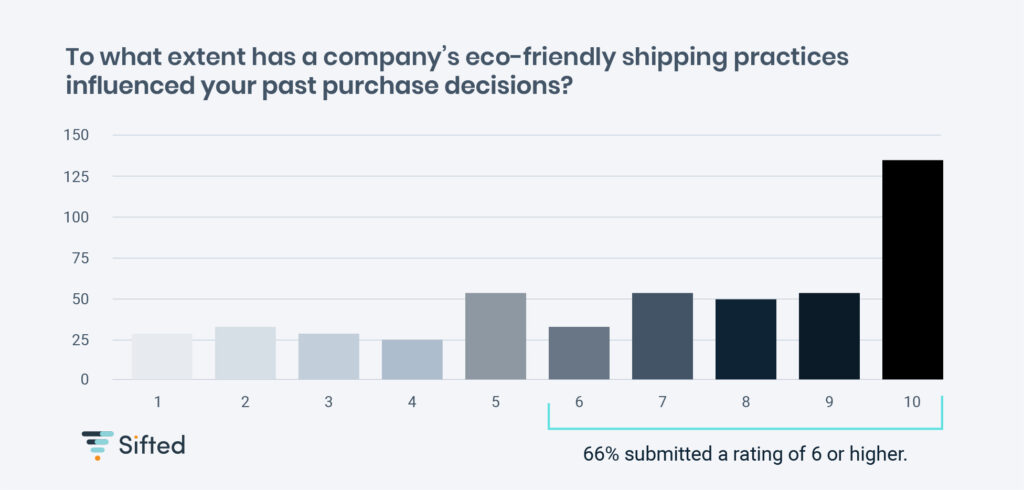
Frequent online shoppers are even more conscious of eco-friendly shipping practices. Eco-friendly practices are either “important” or “very important” to 72% of respondents who receive five or more packages per month, compared to 65% of those receiving one or two per month.
The bar is set even higher for name brands. Among respondents saying brand name is “very important” in purchase decisions, 51% frequently research a company’s eco-friendly practices before buying. In contrast, only 7% of the same group never investigate eco-friendly practices.
In the past five years, 46% of brand loyalists have become “significantly more aware” and “care significantly more about eco-friendly shipping practices.” In addition, 91% believe packaging materials have a moderate or high impact on environmental sustainability.
Consider this an opportunity. Among those who value brand name the most, 80% are willing to pay an extra 10% or more on shipping costs for a product with eco-friendly shipping and packaging practices.
2. 81% of consumers believe companies use excessive packaging
Refunding damaged products can be costly. While larger boxes, styrofoam peanuts, and bubble wrap can seem like a good investment, they might be costing you in ways you don’t expect.
Do consumers want all that packaging?
When asked if companies use excessive packaging when shipping products, 81% of consumers believe they do (rating a 6 or above on a scale of 1 to 10).
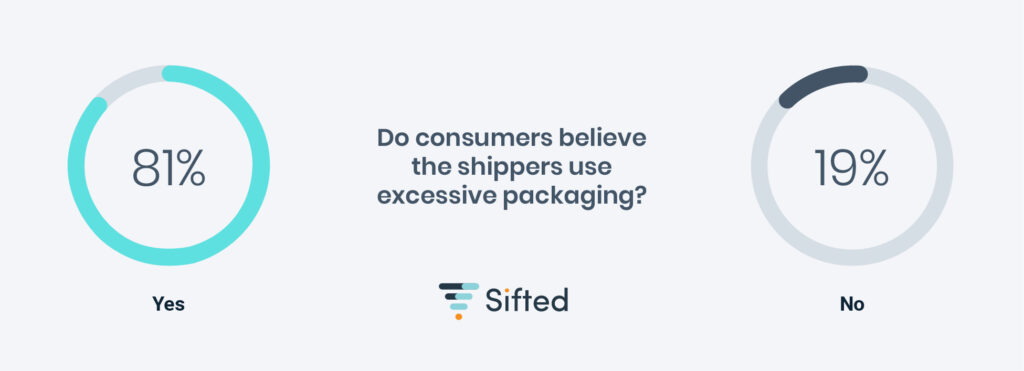
Even the less eco-conscious consumer thinks package sizes are getting out of hand. Of those that say eco-friendly practices are “not important” in purchase decisions, 56% still feel that most companies use excessive packaging. Even among participants that say they never research a company’s eco-friendly practices, 62% think it’s excessive.
The environmental impact of this isn’t lost on consumers, who overwhelmingly agree that packaging affects sustainability. 66% feel package size has a moderate to high impact on sustainability, and 74% feel packaging materials have a moderate to high impact.

So how can you make your packaging more eco-friendly?
The sustainable packaging sector has seen tremendous growth, with numerous solutions now available. Latches can replace box-destroying tape, making boxes more reusable. Packages sized specifically to individual products not only reduce waste, but save you money on dimensional weight costs. Packaging made from recyclable, compostable materials can help you reduce your carbon footprint and keep customers happy, too.
3. 82% of consumers are willing to wait longer for eco-friendly shipping
Immediate access to a product after purchase is one of the main sacrifices of buying online instead of in-store. This drawback, coupled with the “Amazon Effect” (two-day, one-day, or sameday shipping becoming the standard), has made shipping speed a critical factor for many online shoppers. As a result, 74% rate it as either “important” or “very important” when making an online purchase decision.
Don’t assume that speed is everything, especially compared to sustainability. 82% of respondents are willing to wait at least one extra day for eco-friendly shipping. 17% would wait three additional days.

Remarkably, those expecting speedy shipping are slightly more willing to wait longer for ecofriendly shipping. Of those who find shipping speed “very important,” 83% would wait at least one extra day.
Not all consumers understand how speedier shipping increases carbon emissions through less efficient delivery routes. 13% of respondents believe shipping speed has “no impact” on sustainability – more than any other factor. However, those that are aware are overwhelmingly willing to wait longer for their package. Of those who believe shipping speed’s impact is “moderate” or “high,” 84% are willing to wait one extra day, while 66% would wait two extra days, and 18% would wait for three.
4. Over half of consumers will pay more for eco-friendly shipping and packaging
It shouldn’t come as a surprise that price is an essential factor in purchase decisions. 92% of respondents agree it’s at least “somewhat important.”
However, they don’t necessarily value dollars over the environment. Although 92% think price is “somewhat important,” 88% say the same about eco-friendly practices; not far behind.

For years, “eco-friendly” has been synonymous with “more expensive.” While this isn’t always the case, most consumers are willing to offset additional costs associated with eco-friendly shipping and packaging. For example, 57% of all respondents are willing to pay 10% or more for eco-friendly shipping and packaging. Even among the most price-conscious respondents (those saying price is “very important”), 80% are willing to pay at least an extra 5%.
There appears to be a correlation between price-conscious shoppers and environmental awareness.
Of those indicating price as very important:
- When asked how often they research a company’s eco-friendly practices, “frequently” was the most popular answer
- 65% are at least “slightly more aware” and “care more” about eco-friendly shipping than they did five years ago
Additionally, the most price-conscious are more likely to believe various shipping factors impact sustainability. Let’s compare their responses to the “price-careless” – those who rate price as “not important.”
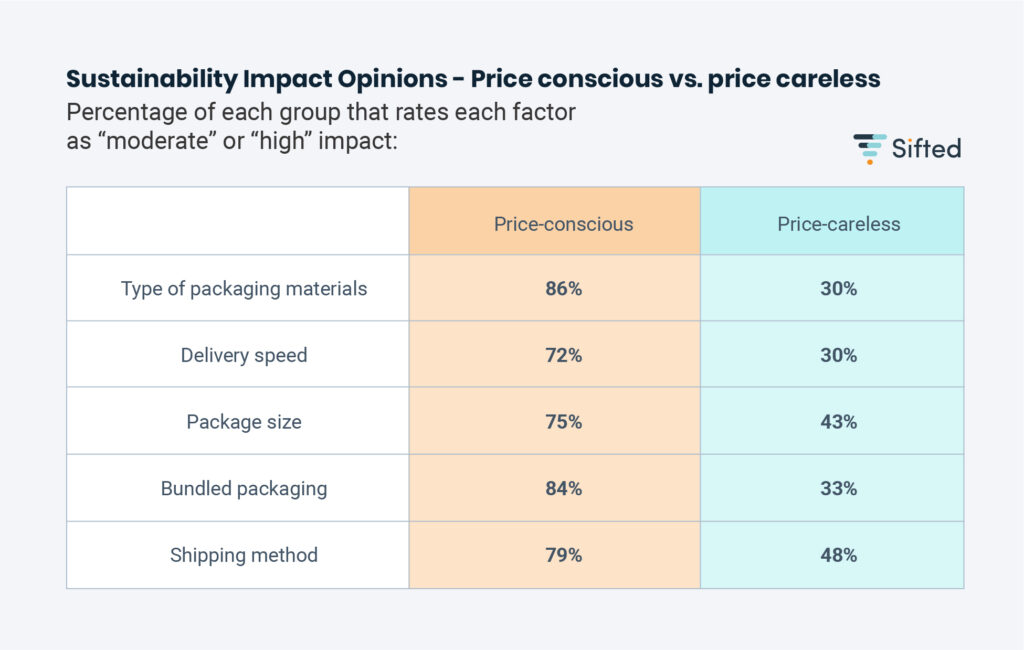
Finally, 25% of this group are willing to pay 20% or more on shipping for a product with ecofriendly shipping and packaging practices. Compared to the 21% of all respondents who say the same, it’s clear that even the thriftiest consumers will open their wallets for eco-friendly practices.
5. 91% of consumers want to see “Eco-Friendly Shipping” at checkout
Maybe you’re not ready to change your supply chain in the name of sustainability. That’s fine, but you should still consider offering eco-friendly shipping and packaging as an option. Your customers want to see it.
Here’s the proof.
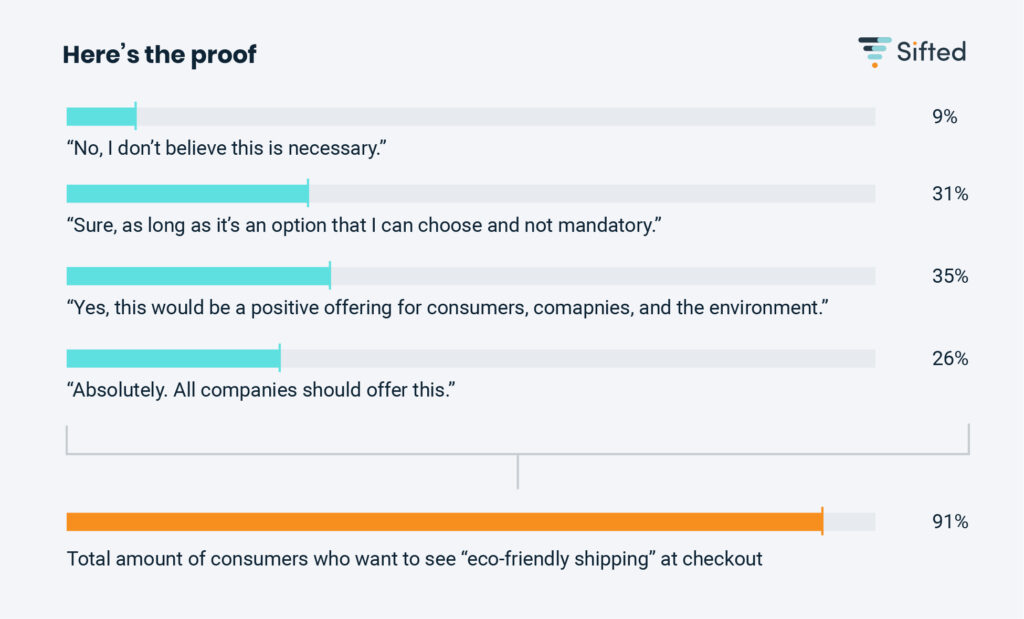
Even if they don’t always choose the eco-friendly shipping and packaging option, 91% believe it should be offered. 73% of those who say eco-friendly practices are “not important” when purchasing would like to see it offered. Of those who say eco-friendly practices hadn’t influenced a past purchase decision (5 or below on a scale of 1 to 10), only 13% selected “No, I don’t believe this is necessary.”
There’s a clear interest in seeing this offering from those who aren’t likely to select it. So what does the demand look like among those who would?
98% of respondents who say eco-friendly practices are “very important” believe that an ecofriendly shipping option should be available to some degree. Of the 136 respondents whose purchases have been most influenced by eco-friendly practices, only 4 don’t believe the option is necessary – less than 3%. Compare this to the 82% that selected “Yes” or “Absolutely,” and it’s clear that the most eco-conscious are eager for an eco-friendly shipping option.
Looking ahead
eCommerce is projected to expand by $1 trillion before 2025. As a result, consumers are thinking more about the environmental impact of their dollars spent. As these trends continue, it will become crucial that shippers adopt eco-friendly practices. Not only will it reduce your carbon footprint, but it could even provide a competitive advantage.
